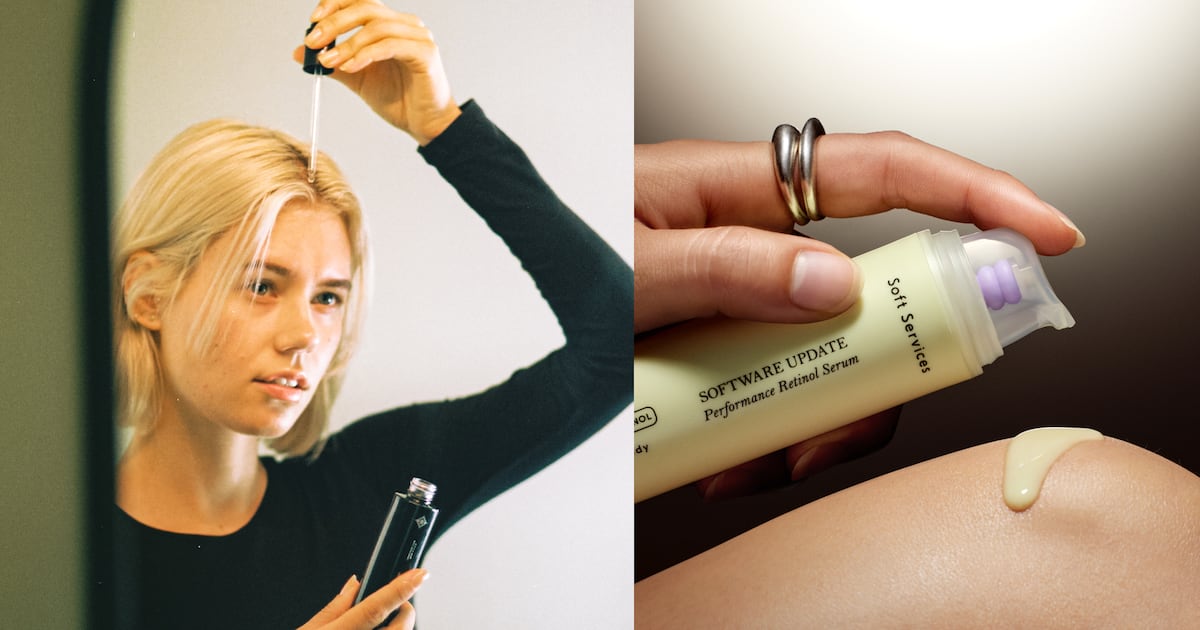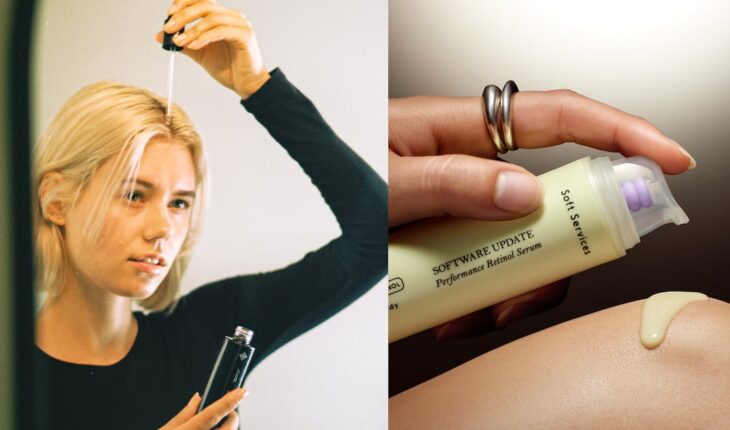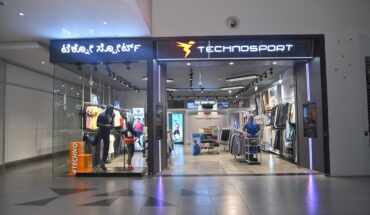
In a TikTok video with over 70 million views, influencer Sylvia Geng conducts a seven-step skincare routine full of luxurious products — a Fenty Skin exfoliating scrub, La Mer oil, facial roller and more — exclusively for her hands.
Geng believes her routine not only improves the look, feel and smoothness of her hands, but can “enhance” her “mental-well being,” she said.
Women’s average beauty routines went from eight to 27 steps between 2006 and 2016, according to a study by UK health and beauty retailer Superdrug. Lately, they’ve gotten even more intensive. Geng’s post is one of a deluge of viral videos showcasing elaborate hair, scalp and body regimens, the likes of which have long been reserved for the face. From the “everything shower” to a hair oil craze, the trends reflect the growing “skinification” of beauty, which has seen everything from the scalp to hands to body get the same extensive treatment with facial skincare-style products containing active ingredients like retinol, vitamin C and hyaluronic acid.
“The multi-step routines in facial skincare have now extended to other categories, including body care, hair care, and even fragrance,” said Jeff Lindquist, a partner at Boston Consulting Group. A BCG survey showed 30 percent of consumers used more body care products in 2024 than in 2023, with 40 percent using over five hair products daily.
Detractors say these increasingly intricate routines are another mark of overconsumption. But in a saturated, slowing beauty market, brands have turned to newer categories like body and scalp serum to stay differentiated — and drive explosive growth.
The Hair and Body Care Frontier
Body and hair treatments have emerged as a bright spot in a lacklustre period for beauty product innovation: Mintel’s Global New Products Database found that between January and May 2024, only 46 percent of beauty product launches were considered genuinely new — a 10-year low.
In addition to a wave of body care-specific labels, like Nécessaire and Soft Services, face-focused skincare brands have sought to apply their technology to other areas of the body. Augustinus Bader and Drunk Elephant were among those early to enter the hair and body categories between 2019 and 2020 with products like Augustinus Bader’s Body Cream with bisabolol and Drunk Elephant’s scalp scrub with AHA and BHA.
The rush to these categories remained fast and furious in 2024. Skincare brand The Inkey List, known for its face formulations, recently entered body care with an Exfoliating Body Duo comprising a stick and cream. The Ordinary entered body care in August, and its parent company Deciem relaunched body-care brand Loopha in September with products such as a “biomimetic” body serum. Sephora-stocked skincare label Eadem unveiled its first body product, the acid-infused Smooth Slate Ingrown Relief Serum, in the same month. Serums, masks and treatments for the hair have also been front and centre in new brand launches like The Rootist and celebrity hair lines unveiled in 2024 by Beyoncé, Brooke Shields, Blake Lively and Rita Ora.
The skinification of everything has also reached the largest mass body-care brands – consumers can buy scalp and hair serums from Dove and Pantene and niacinamide-infused body serum from Victoria’s Secret.
“When we first came out, it was very much about, ‘Hey, there’s something new,’” said Michelle Miller, chief marketing officer of biotech haircare label K18, which was bought by Unilever less than three years after its 2020 launch thanks to the smash success of its hero product, the Leave-in Molecular Repair Hair Mask. It’s since expanded its assortment to seven products, including a hair oil.
New Rituals
When launching new product categories, brands need to convince consumers to first buy, and then incorporate them into their regular routine.
TikTok influencers have been a massive help. Labels such as body hair grooming brand Fur, for example, tapped into the “everything shower” — the TikTok trend showcasing elaborate head-to-toe shower routines — while haircare seller Mielle and hair and body brand Gisou achieved virality for the popularity of hair oil routine videos. K18 works with TikTok influencers like Abbey Yung, a trichologist, or scalp expert, who inspires her 1.3 million followers with seven-step hair routine videos that result in silky, shiny hair.
Brands are also turning to trichologists in real life as they partner with professional salons and K-beauty-inspired “head spas” popping up in the US, offering scalp analysis, steaming, exfoliation, masks, herbs and serums. Hair care brand Reverie, which was early to the scalp category, has benefited from the head spa effect. The company’s president Hillary Markenson said Reverie’s products have been implemented into scalp treatments at partnering salons.
“Before, it was, ‘you come in, you get your colour, you get your cut, you get a blowout,’” Markenson said. But recasting a scalp treatment as a spa service can make multi-step routines feel more like self-care and less like work.
“I don’t sell product,” said Akash Mehta, co-founder and chief executive of hair-care brand Fable & Mane. “I sell rituals.” His own hair-care routine is around eight steps and includes the brand’s serums and hair oil alongside breathing exercises and scalp massage.
Body-care brand Soft Services took a similar approach, recently launching a scented version of its Theraplush retinol hand cream housed in a decorative container that won’t be forgotten in a cabinet. It also added a scent to its Buffing Bar exfoliant in partnership with niche fragrance label DS & Durga. Rebecca Zhou, Soft Services chief executive, said that the scent and aesthetic help consumers keep up regular use.
“We think about using these different senses to help to encourage people to adopt these new routines,” said Zhou.
But the more elaborate the routine, the more controversial it can be on TikTok. A 15-step hand care routine by influencer Victoria (@elysian.living) received 15.6 million views after commenters debated the necessity of using a steamer, Drunk Elephant oil, sheet mask, Nécessaire retinol cream and more. The top comment called her consumerism’s “final boss.”
But some brands also believe that expanding their product lines can make consumers’ routines more efficient. While influencers like Yung incorporate K18′s hair mask among seven steps, the brand’s CMO Miller emphasised that it can be used instead of conditioner.
“There are a ton of steps that are offered to the customer every day,” Miller said. “For us, that insight was, ‘How can we shorten that?’”
The key to successful launches, founders say, is to avoid getting caught up in the pressure for constant newness.
New products have “to be serving a real need rather than just adding something for the sake of the product pipeline,” said Mehta, who predicts that the hair routine of the future won’t be 10 steps long.
“That’s the beauty of hair. It’s not that complicated,” he said.





